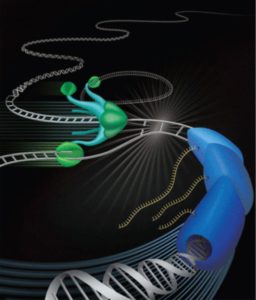Houra Merrikh
Department of Biochemistry
Department of Pathology, Microbiology and Immunology (PMI)
Vanderbilt Institute for Infection, Immunology and Inflammation (VI4)
The Merrikh lab has two major interests: 1) the mechanistic, physiological, and evolutionary outcomes of the collisions between the DNA replication and transcription machineries, and 2) characterization and inhibition of the molecular mechanisms that promote the evolution of antibiotic resistance. Our laboratory uses a wide variety of techniques to studies these topics, ranging from in vivo single molecule imaging, to biochemical, molecular, and genetic methods, as well as genomics, and bioinformatics approaches. Our research utilizes a wide variety of bacterial species, including the model organisms Bacillus subtilis and Escherichia coli, and important pathogens including Salmonella typhimurium, Mycobacterium tuberculosis, and Pseudomonas aeruginosa.

The Merrikh lab has two major interests: 1) the mechanistic, physiological, and evolutionary outcomes of the collisions between the DNA replication and transcription machineries, and 2) characterization and inhibition of the molecular mechanisms that promote the evolution of antibiotic resistance. Our laboratory uses a wide variety of techniques to studies these topics, ranging from in vivo single molecule imaging, to biochemical, molecular, and genetic methods, as well as genomics, and bioinformatics approaches. Our research utilizes a wide variety of bacterial species, including the model organisms Bacillus subtilis and Escherichia coli, and important pathogens including Salmonella typhimurium, Mycobacterium tuberculosis, and Pseudomonas aeruginosa.
Keywords: replication-transcription conflicts , antimicrobial resistance , mutagenesis , DNA replication , evolution , bacteria
Research Area: Imaging , Cell Cycle, DNA Repair, and Chromosome Biology , Genomics , Bacteriology , Evolution